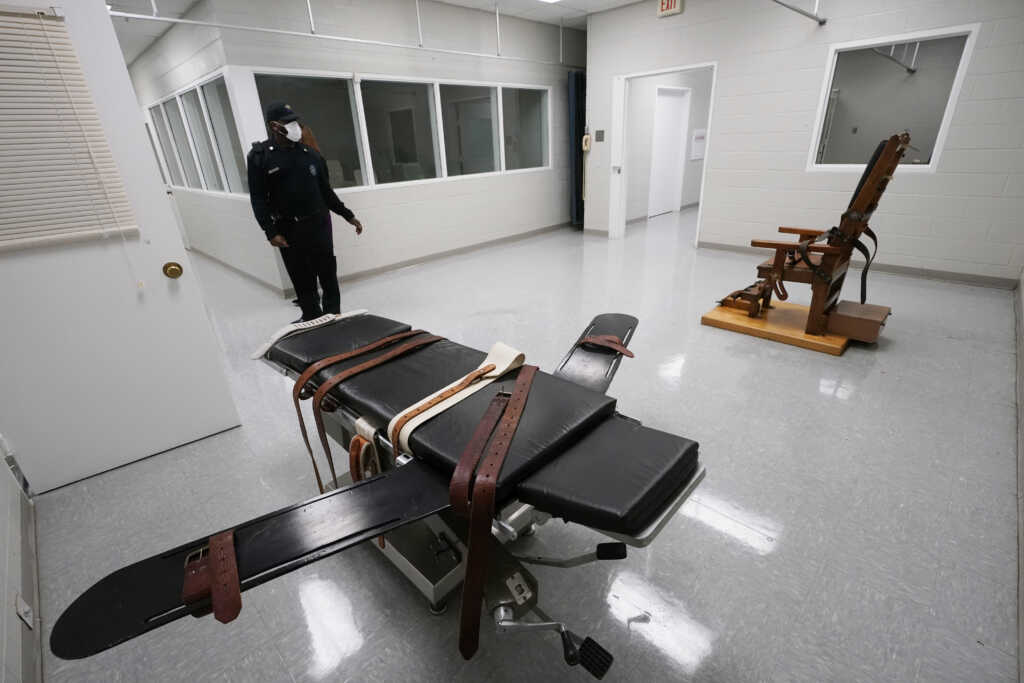The U.S. Supreme Court heard arguments Tuesday surrounding a fascinating and consequential case involving the death penalty, inmates’ rights — and religious liberty.
The justices weighed arguments from both sides of the debate over John Henry Ramirez, a man sentenced to death for a fatal 2004 stabbing of 46-year-old convenience store worker Pablo Castro, Reuters reported.
The Background
Ramirez, 37, is seeking the right to have a Christian pastor lay hands on him and pray aloud during his execution — something he’s precluded from doing due to current regulations in Texas, where his death will unfold.
As previously reported, Ramirez’s execution, which was originally scheduled for early September, was delayed by the Supreme Court just hours after his lethal injection could have unfolded. Months later, the court has finally heard arguments from both parties.
LISTEN TO TODAY’S PODCAST AND SUBSCRIBE:
Lawyers for Ramirez argue the denial of his pastoral request violates the First Amendment, while Texas believes the inmate is simply trying to delay his execution.
“It is hostile toward religion, denying religious exercise at the precise moment it is most needed: when someone is transitioning from this life to the next,” Ramirez attorney Seth Kretzer said in court documents.
As the Associated Press noted, prison officials contend direct contact with the inmate could create potential security risks, and vocal prayers, which could distract, might impede what must be a truly orderly process.
The Pastor at the Center of the Case
The pastor at the center of the case — Pastor Dana Moore of Corpus Christi, Texas — traveled this week to Washington, D.C., to pray over the case.
Moore ministers in Texas prisons and has directly worked with Ramirez, according to ABC News.
The Baptist minister doesn’t see any reason why he can’t have contact with Ramirez during the execution and has vocally addressed his confusion over the matter.
“What’s the harm of that — having my hand on his foot?” Moore rhetorically asked in his ABC News interview. “It is a sincere request.”
He expanded upon these issues in TIME, noting a pastor’s job isn’t to “stand still and be quiet.”
“Prayer is very important. And the power of touch is real. It’s encouraging. It brings peace. It’s significant,” Moore said. “Why can’t I hold his hand?”
The pastor didn’t share his views on the death penalty, but did note that he has hope the court will allow him to pray as Ramirez takes his last breaths.
“I don’t know how [the Supreme Court] will rule, but there’s hope,” he said. “I have hope for John.”
How the Justices Reacted
As for the Supreme Court, the justices seemed conflicted during the 90 minutes of oral arguments on Tuesday, with Justice Brett Kavanaugh pondering whether a ruling in Ramirez’s favor would spark a flood of similar complaints.
“We can look forward to an unending stream of variation,” he said.
Chief Justice John Roberts made intriguing statements about the legitimacy of faith and the ways in which impending death could impact a person’s connection to it.
“I suspect impending death focuses people’s concerns on religion in a way they may not have had before,” Roberts said. “What about an inmate who seeks a religious conversion right before an execution?”
Meanwhile, Justice Stephen Breyer noted states and the federal government have both made similar accommodations in the past without incident.
“So we have experience and there’s never been a problem,” Breyer said.
Read more about the important case here. A ruling is expected in the coming months.
***As the number of voices facing big-tech censorship continues to grow, please sign up for Faithwire’s daily newsletter and download the CBN News app, developed by our parent company, to stay up-to-date with the latest news from a distinctly Christian perspective.***



